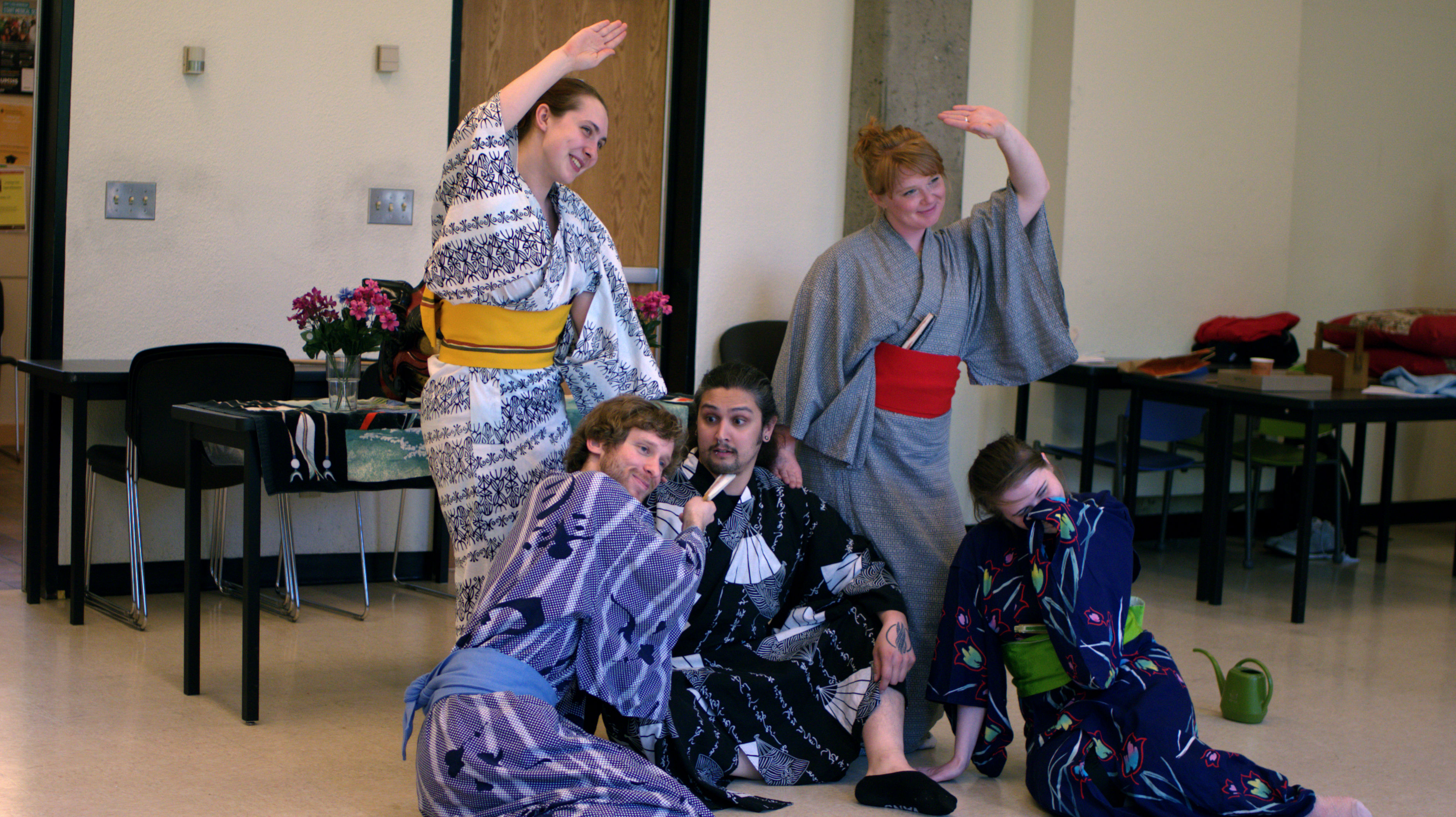For the last 15 years, Laurence Kominz has been staging Kabuki performances right here on Portland State’s campus. This year the show will be held on May 30 and 31 in Lincoln Hall.
“It’s two plays, very different plays,” Kominz said. “One’s a dance drama. One is a romantic, acted drama set in the grandest castle tower in Japan.”
The Castle Tower is a set piece full of rich characters and beautiful dancing that involves forbidden love between a beautiful goblin princess and a handsome samurai.
The other play, called The Puppeteer, is a comedic mashup of different styles of Kabuki. “It’s funny, it’s exciting, it’s like all the best parts. It’s kind of a collage,” said cast member Devon Duncan, who is dancing the part of Oshichi.
Kominz’ passion for Kabuki started when he took a trip to Japan. “I saw Kabuki first on my junior year abroad,” Kominz said. “I come from the east coast, so I could go to Broadway when I was in high school, for example. I saw [Kabuki] and I thought ‘I’ve never seen anything this phenomenal.’”
It is not uncommon, Kominz said, for audiences to cheer the heroes and boo the villains during the performances. As a matter of fact, it is encouraged and he’s instructed his actors how do deal with any possible audience participation.
“That sort of response is what a Kabuki audience should do. It’s not like a polite, intellectual, American theater experience and so the audience is not so polite either.”
Kabuki has a rich history, dating back to the year 1600, where it was performed primarily by women. By the 1620s, however, prostitution became a part of the post performance activities, causing the powers-that-be to ban women from the stage.
Though it is still a male-only affair in Japan, Kominz takes a more liberal approach to the art form. In his productions both males and females perform, often playing roles designed for the other gender.
“Women PSU students are very welcome on our stages here at Portland State,” Kominz said. “The majority of our students who are men are playing men and who are women are playing women, but pushing gender boundaries is very much a part of Kabuki.”
Initially, Kominz used pre-recorded music and singing for his productions. However, In 2012, he joined forces with Wynn Kiyama and now all of the instrumentation is done live.
Kiyama is the creator and director of the PSU Taiko Ensemble as well as the executive director of Portland Taiko. In addition to the Kabuki theater, the PSU Taiko ensemble will be performing Isami Goma before the first act and HA! after the intermission.
At its core, Taiko is a bombastic, energetic mix of drumming and movement based on Japanese festival rhythms. Ensemble member Karl Freitag described it as, “Big drums. Big sound. Big fun!”.
While the two art forms are not strictly related they should make an excellent cultural pairing.
“You don’t get to see this kind of stuff in the states,” Duncan said. “It’s the first time that either of these plays have been done in English.”
You can witness the spectacle on May 30 and 31 in Lincoln Hall on the PSU campus.






